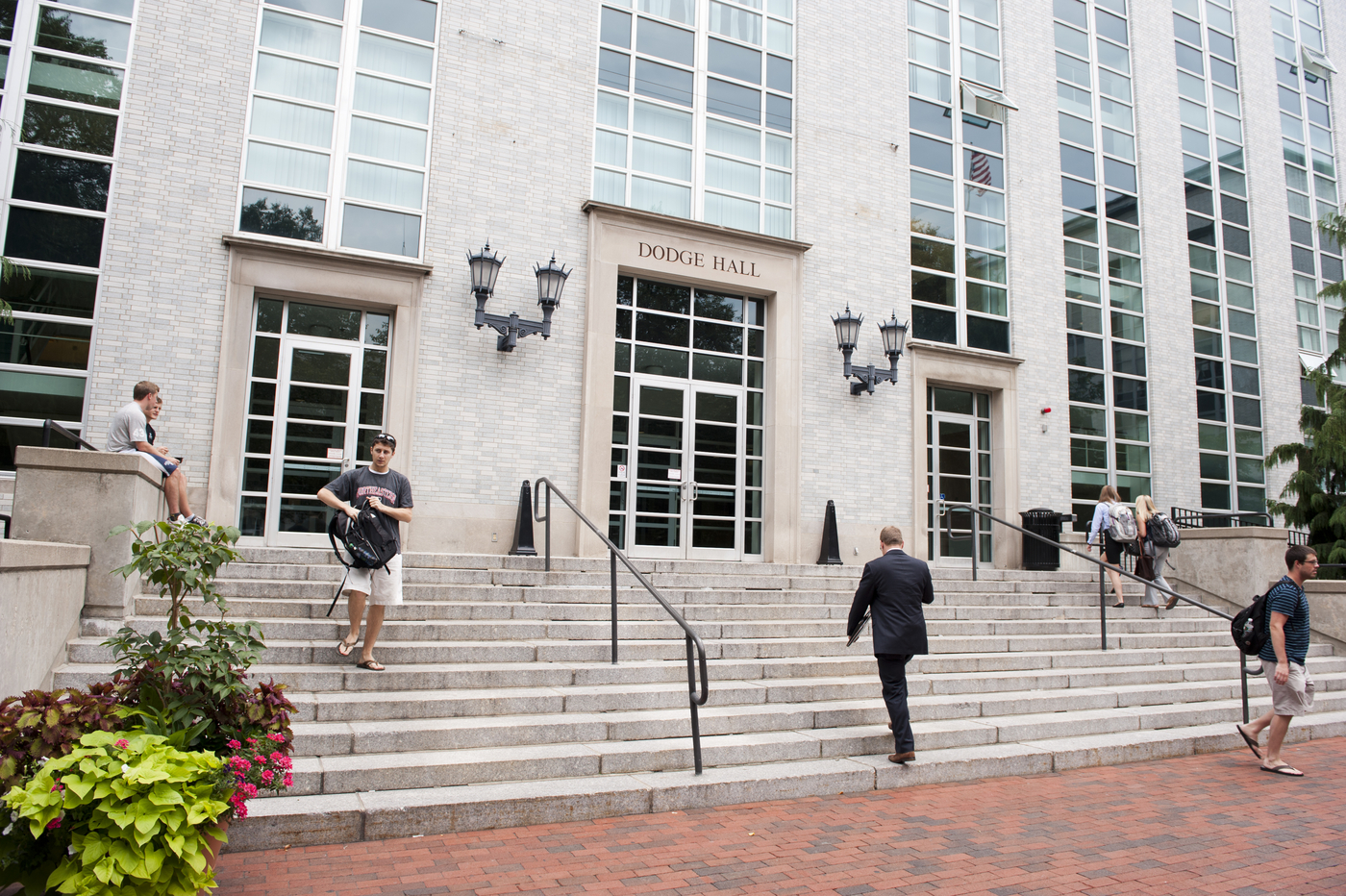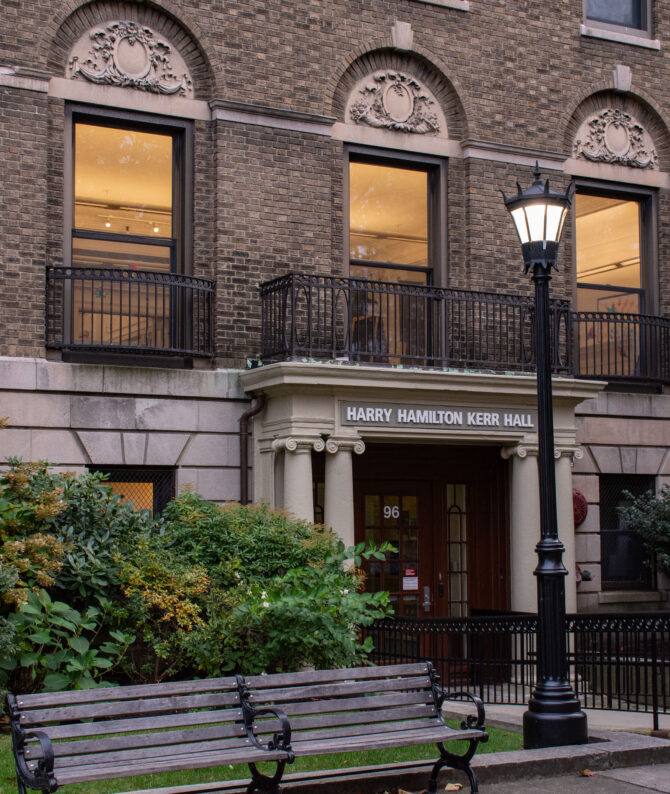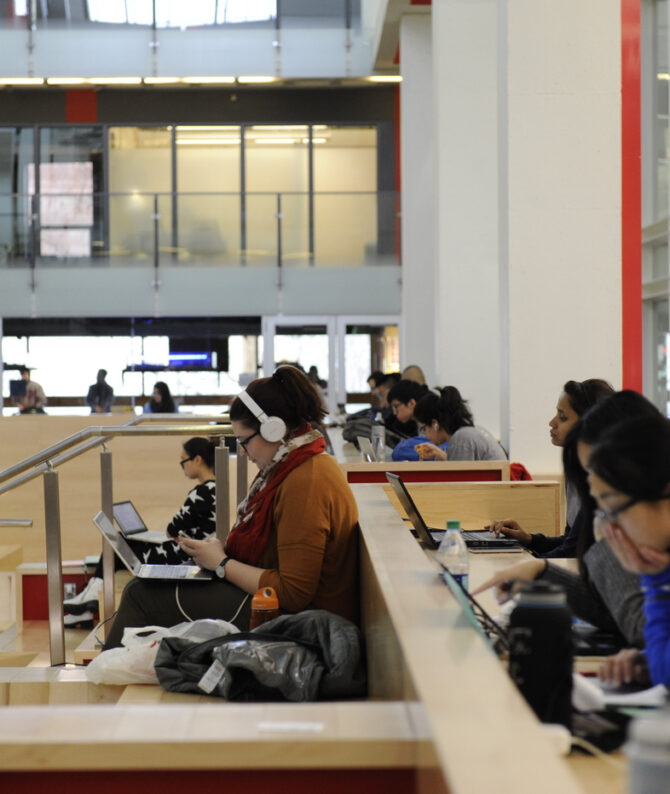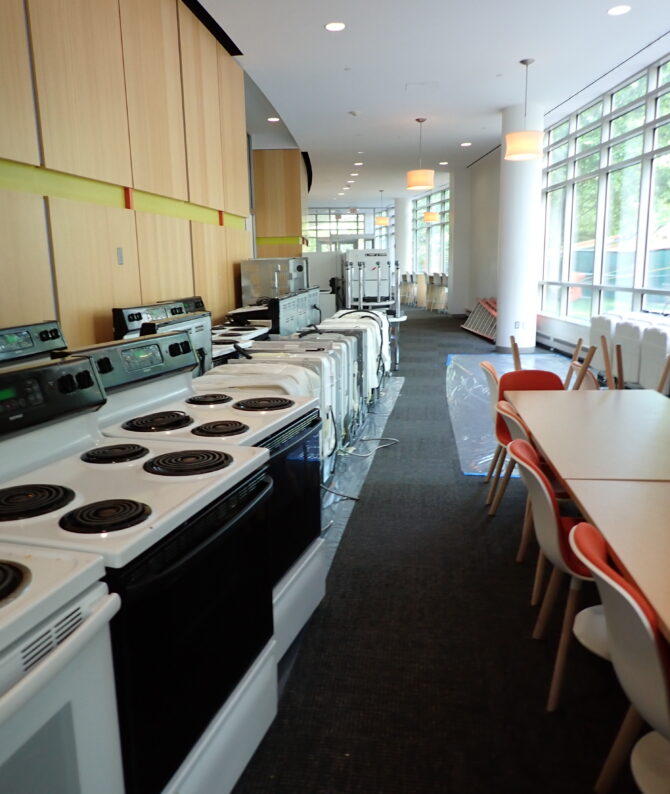Sustainability is in Business at NU

In 2019, Sheila Puffer, a professor of international business at Northeastern, spearheaded the effort to create the DMSB Sustainability Steering Committee. She soon invited David Myers, the director of the business sustainability initiative for D’Amore McKim, and a professor of finance who oversees the Sustainability in Business Practices minor, to join as co-chair. “Professor Myers was a natural choice to co-chair the committee with his expertise in sustainability on several fronts,” Puffer explained.
The committee meets every two weeks to discuss the best ways to make the business school more sustainable as well as support sustainability initiatives throughout Northeastern. The group is made up of a dozen faculty and staff who volunteer their time.
“What we’re trying to do is increase awareness,” Myers said. To accomplish this, the group writes blurbs on sustainability to publish in the D’Amore-McKim weekly online newsletter sent to all faculty and staff. Topics have included composting, transportation, and sustainable gift ideas, among many others.
“The first real action we took was we looked at the 2019 fall purchasing aspects of paper, toner, and water, and then through facilities also looked at electricity usage. And we’ve now done that again for 2020,” noted Myers. From 2019 to 2020, the number of ink/toner cartridges used in the business school decreased from 72 to 22, the number of boxes of cardstock decreased from 46 to 17, and the cases of individual water bottles from 140 to 63. Obviously, 2020 was hugely affected by COVID, which no doubt helped bring the numbers down. Myers says the committee is in the process of collecting data for 2021 and is hoping the numbers fall somewhere in between 2019 and 2020.
The committee also highlights the work being done surrounding sustainability in the business school. One February newsletter included a list of accomplishments attributed to the Co-op department: The refrigerator was replaced with a smaller, more energy efficient model, new window latches and shades were installed to decrease energy usage for heat and air conditioning, most printers were removed, and they no longer purchase single use plastic water bottles or disposable cups. “The initiative taken by Esther Chewning and her team is an excellent example for all of us to follow,” Puffer said.
With a background in business as well as the environment and sustainability, Myers often considers the best ways to solve environmental problems. “One of the questions that we discuss in class is: Is it technology? Is it leadership through societal and social pressures? Or is it economics? And I would argue that there is not just one way, that it really has to be a combination.”
Educating people on environmental issues and ways we can solve them is a step in the right direction, but nobody is under the illusion that it’s going to solve things on its own. “As an economist, I would have to say that we don’t have an enforcement mechanism. We don’t have a big stick,” Myers said. “The question of awareness is the question of first steps. We won’t get there without it, but we also need more.” The DMSB Sustainability Committee is doing its part to raise awareness and encourage more sustainable practices on campus.
Written by Adam Doucette – 4/14/2022



